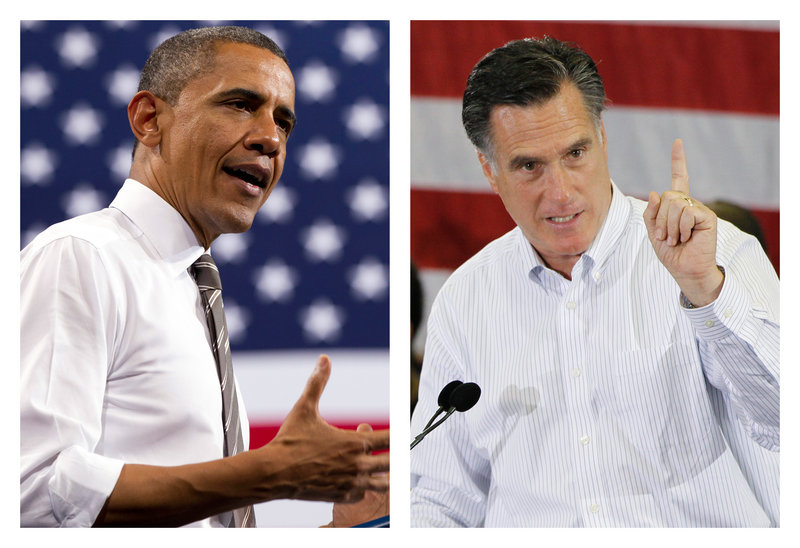EAST WATERBORO — Every four years, the nation decries the failings of the so-called Electoral College. Untold numbers of Americans stay home on Election Day, convinced their votes make no difference. Yet, despite two centuries of congressional efforts to abolish this system — more than 700 individual attempts in all — the Electoral College survives intact.
A fix exists, however, requiring no constitutional reform, no state or federal legislation, no grass-roots uprisings: just a simple pledge from each presidential candidate that should he win the Electoral College, but lose the popular vote, he will offer his opponent a role in leading the nation.
For the first time in our nation’s history, the popular vote would matter. This pledge, made by both major-party candidates, would solve many of the problems of the Electoral College and could be the stepping stone toward its eventual abolition.
Tuesday’s winner can set this plan in motion. The election will be close. Regardless of whether the Electoral College and popular votes are at odds or aligned, the winner will lack a resounding mandate. He can strengthen the legitimacy of his election by offering his opponent a role in his administration, and use that act to promote this Electoral College fix: that all future presidential candidates pledge that if they win only the Electoral College, they will offer the winner of the popular vote a national leadership role.
This proposal is far from radical. Nearly every one of the last 10 presidents has promoted post-election reconciliation by bringing at least one member of the opposing party into his administration, typically as a Cabinet secretary and once as United Nations ambassador. John F. Kennedy, after his 1960 victory over Richard Nixon in the closest election in nearly 50 years, did, in fact, offer Nixon a role (at least temporarily) in his administration, although Nixon chose to decline.
But this pledge aims for more than national unity and reconciliation; it aims to fix the ways the Electoral College damages our democracy. And they are many:
• Violating the principle of “one person, one vote” by the disproportionate allocation of electors.
• Breeding voter apathy in those states whose outcomes are essentially pre-determined.
• Distorting national policy through the candidates’ pandering to the swing states.
• Casting doubt on an election’s legitimacy, as has happened four times in our history, when the Electoral College winner fails to win the popular vote.
Is it any wonder that no other nation, nor any one of the 50 U.S. states, uses a similar approach to elect its chief executive? Even the framers of the Constitution were generally unhappy with the Electoral College. It was a complicated set of compromises designed to appease conflicting interests — particularly slaveholding versus free states — that no longer exist today.
The American people, however, need little convincing of the Electoral College’s faults, voicing consistently strong support for its abolition. In a 2007 poll, 72 percent of Americans supported electing the president by direct popular vote. And such support differs little between the small states supposedly benefiting from the Electoral College and the large states supposedly disadvantaged.
Consider Wyoming, which gets one electoral vote for every 189,000 residents, and California, which gets one for every 685,000 residents.
Recent polls show similar levels of support in these two states for direct popular election of the president — 69 percent in Wyoming and 70 percent in California — despite each voter in Wyoming currently having nearly four times as much say in choosing the president as a voter in California.
By making the popular vote count — even if only when the popular and Electoral College votes are at odds — the problems of the Electoral College would diminish. Voter turnout would increase, the candidates would broaden their agendas to the full national interest and Americans would regain trust in our democracy. We might even see a return of civility to the campaigns, as the candidates consider their possible futures together.
So, at this moment when Americans are keenly aware of the Electoral College’s defects, we should emulate the framers of the Constitution and aim not for perfection, but for progress.
Whether Tuesday’s Electoral College and popular votes are aligned or not, the nation would be well served by the winning candidate offering his opponent an olive branch, by way of an opportunity to join him in serving the nation. And both men should take a stand for future Electoral College reform, by promoting this voluntary pledge to make the popular vote matter.
Jeff Edelstein of East Waterboro is a public policy consultant and author of the forthcoming book “From Oath to Action: Restoring American Democracy, One Politician at a Time.”
Send questions/comments to the editors.



Success. Please wait for the page to reload. If the page does not reload within 5 seconds, please refresh the page.
Enter your email and password to access comments.
Hi, to comment on stories you must . This profile is in addition to your subscription and website login.
Already have a commenting profile? .
Invalid username/password.
Please check your email to confirm and complete your registration.
Only subscribers are eligible to post comments. Please subscribe or login first for digital access. Here’s why.
Use the form below to reset your password. When you've submitted your account email, we will send an email with a reset code.